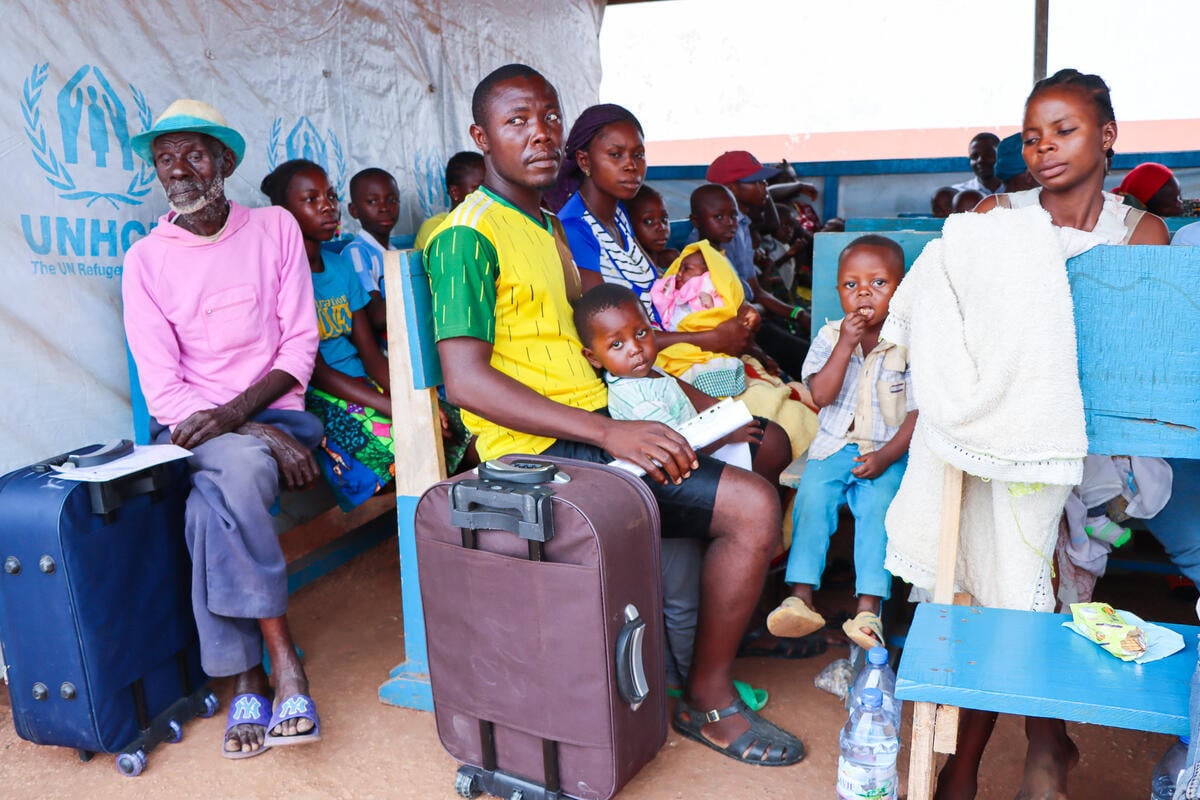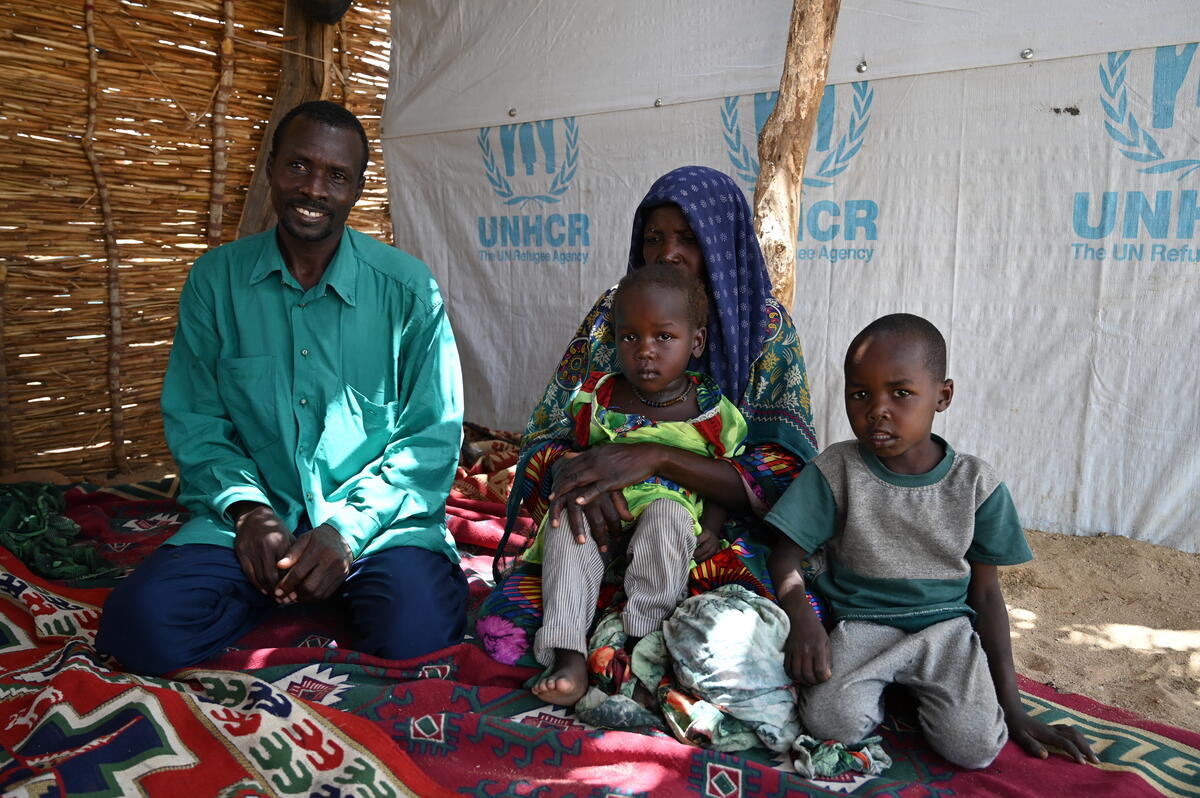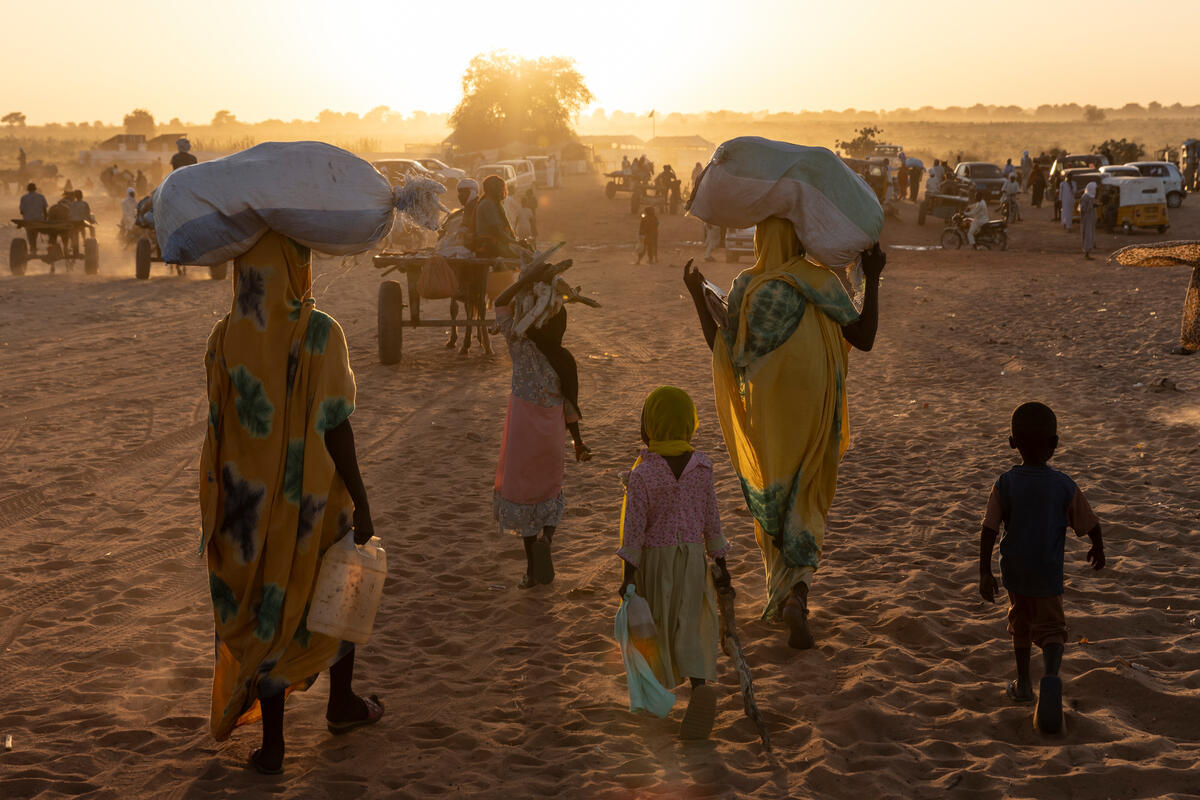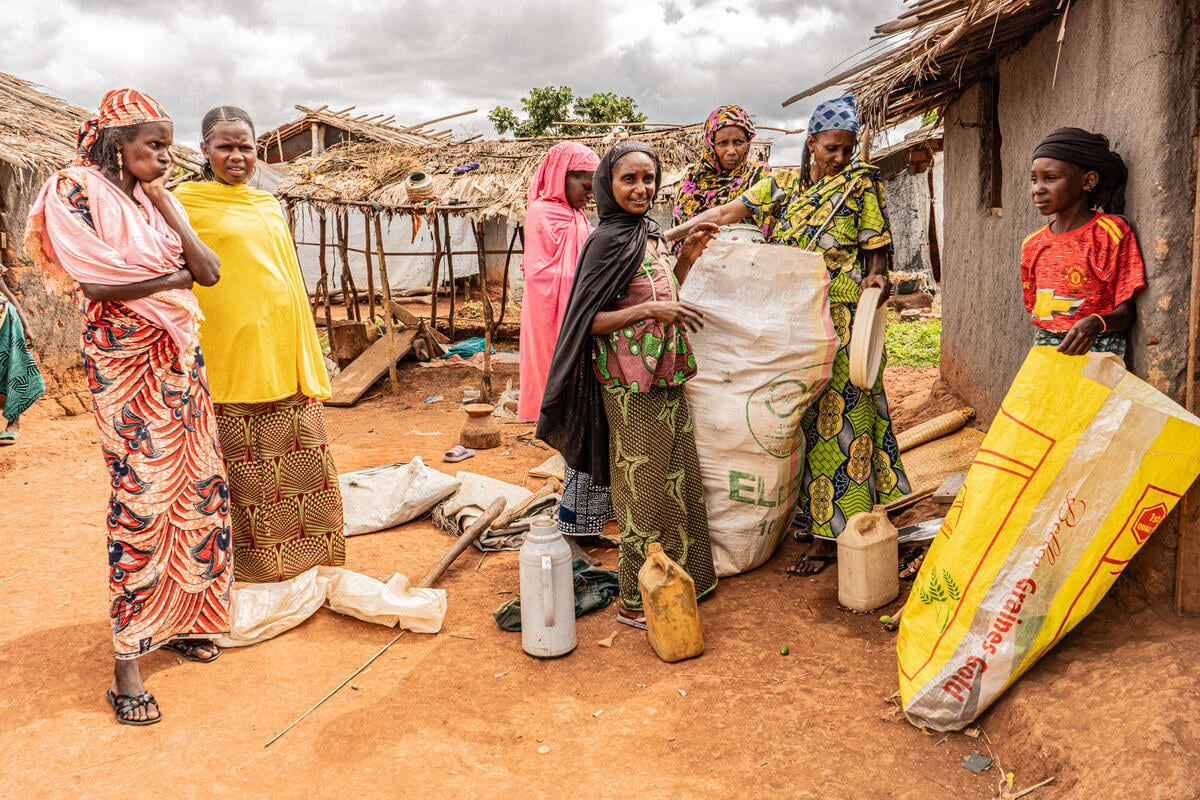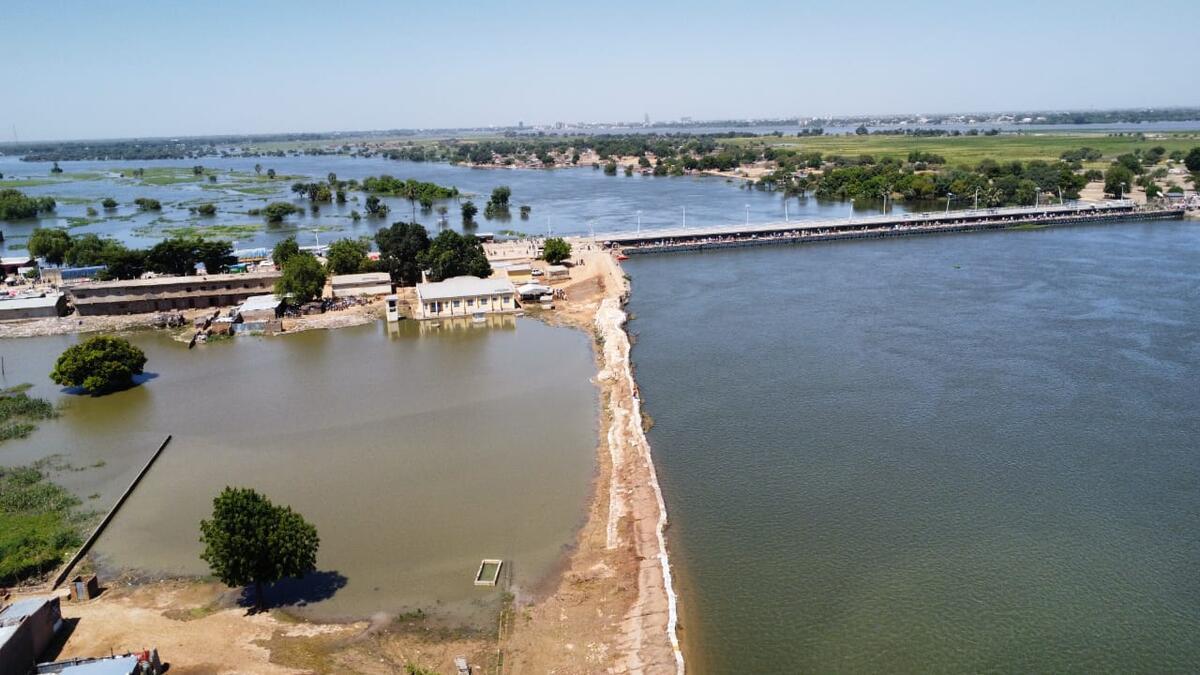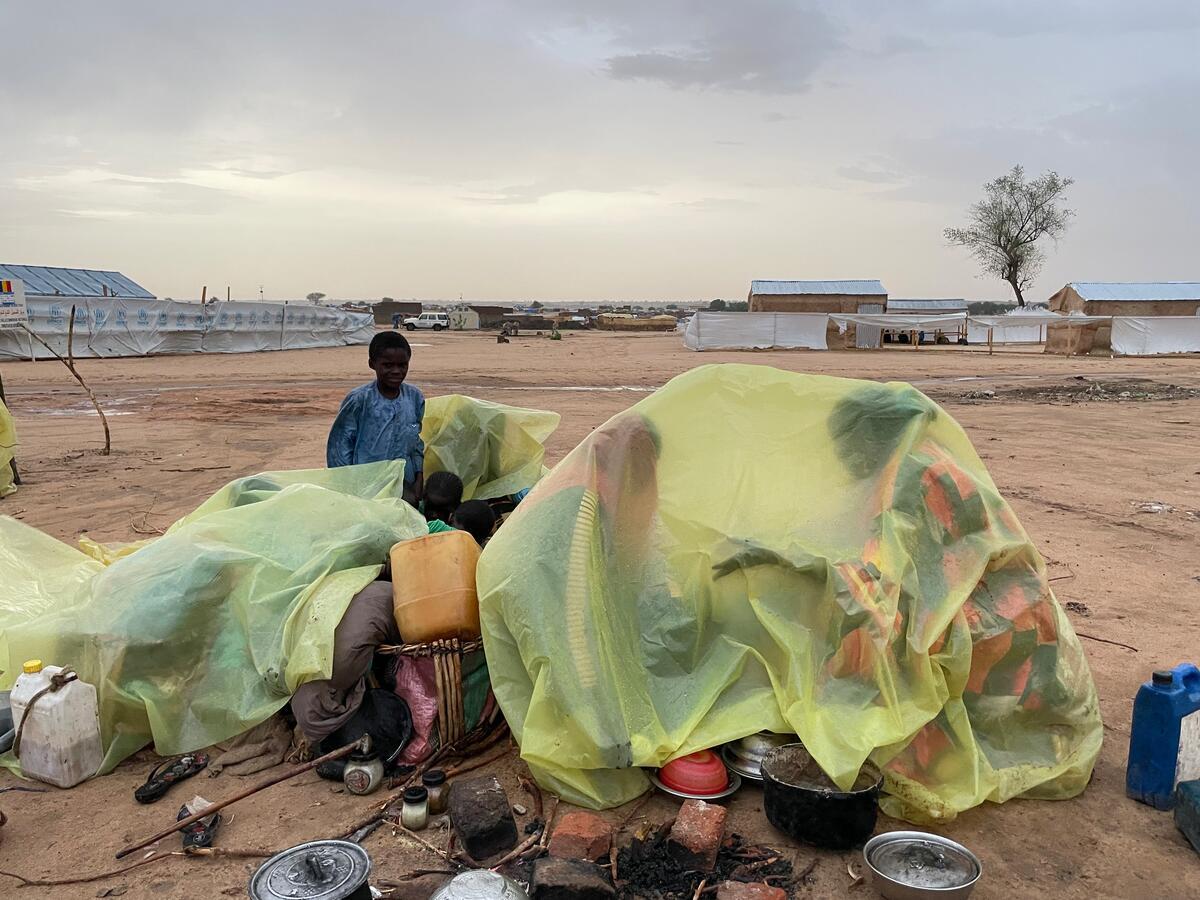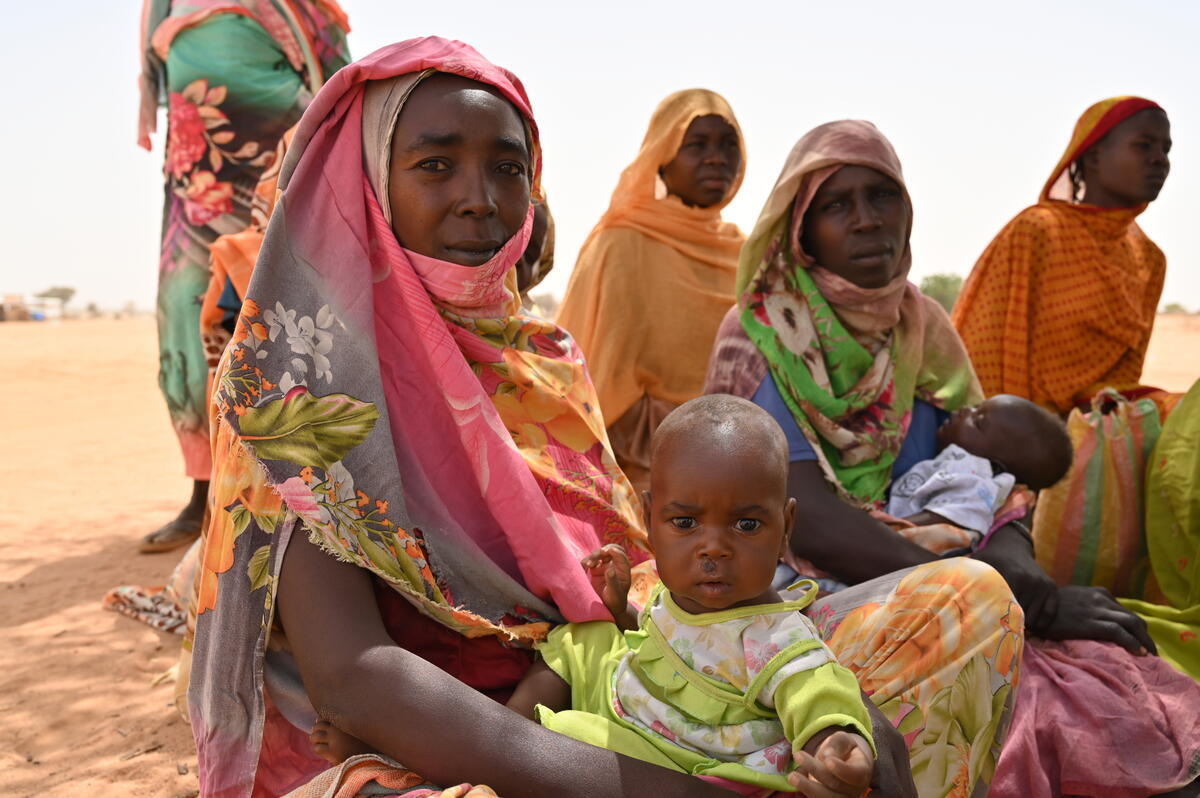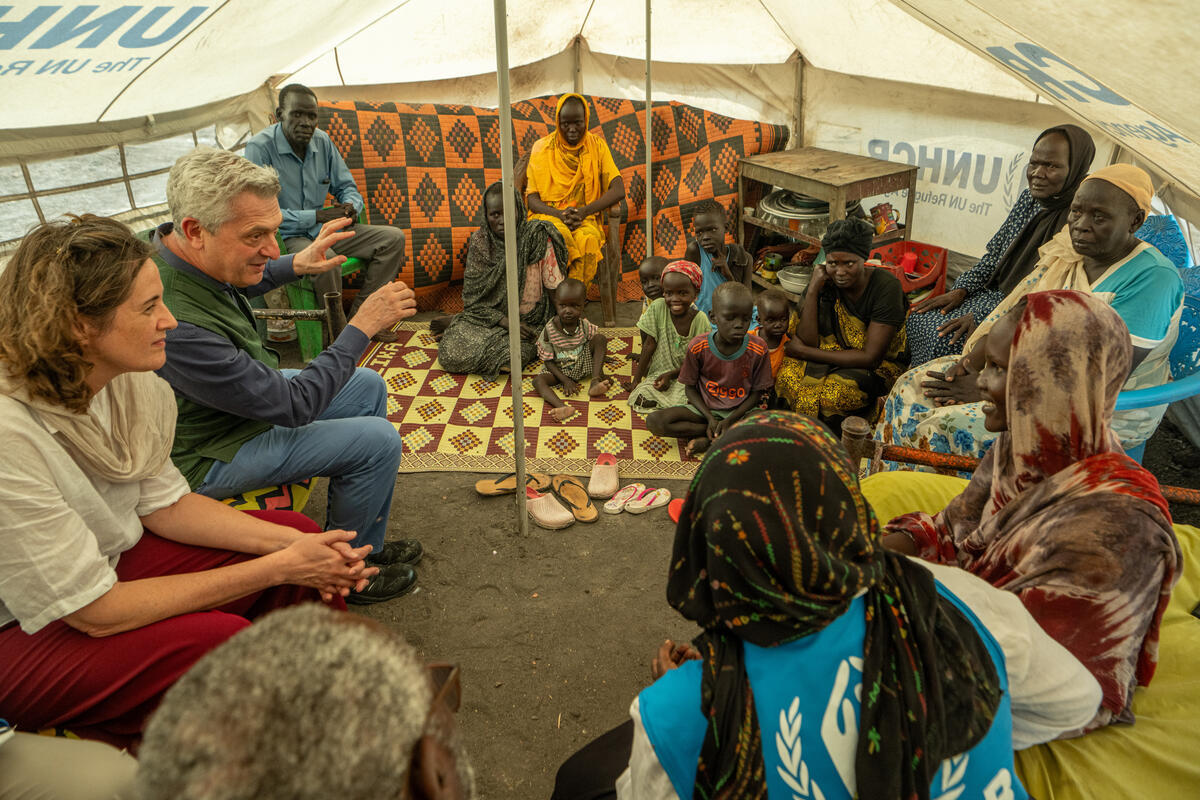Chad: Rush to relocate Central African Republicans in south before rains
Chad: Rush to relocate Central African Republicans in south before rains
UNHCR staff in remote southern Chad are rushing to relocate an estimated 10,000 refugees who have fled unrest in the Central African Republic (CAR) since early June. The refugees, many of whom fled with nothing, are currently scattered among 17 villages near the Chadian town of Goré and may soon be cut off from help by the onset of the rainy season.
Pending their relocation, UNHCR has been distributing emergency plastic sheeting, blankets and high-protein biscuits provided by Unicef to the refugees. Chadian villagers are also offering what help they can. The refugees have been living in flimsy, makeshift shelters built of leaves and sticks. They brought no food with them, and many children and women are showing signs of malnourishment. They are eating whatever they can find in the bush - mainly roots, wild fruit and leaves. They are drinking local river water and there is no proper sanitation.
We are expecting a decision today on relocating the refugees to a central site, where assistance can be more easily provided. This is particularly crucial with the arrival of the rainy season. Our Chadian partners say that by mid-July, wide areas will likely be cut off by flooding. So we will need to move fast. UNHCR Chad is deploying 11 logisticians, field officers, protection officers and extra drivers to help our Goré office with the operation.
Among the options being considered is relocation of the 10,000 new arrivals to Amboko camp near Goré, which already hosts some 13,000 CAR refugees. Amboko could hold up to 27,000 people and would be able to provide health care services, water and sanitation facilities.
The latest refugees fled northern CAR during the first three weeks of June following an incident between government forces and unidentified armed groups. No new arrivals have been reported since June 21. Although no new attacks have been reported since the June 3 incident in northern CAR, the newly arrived refugees in southern Chad say they have no intention - at this point at least - of returning to their villages anytime soon, citing fear of further violence.
UNHCR and Unicef, in cooperation with the Chadian government and other partners, including MSF, COOPI and African Concern, are currently looking after the refugees. Over the weekend, a UNHCR team visited the villages and met with the refugees. Distribution of emergency supplies is continuing. Recent rainfall has forced some refugees to wade across swollen rivers to reach UNHCR's distribution site. Diarrhoea, malaria, eye infections, malnutrition and two cases of measles have been reported in the refugee and host populations. An immunization campaign is due to start in the coming days.
There are already 30,000 refugees from the Central African Republic in southern Chad. The majority of them arrived in 2003 after a military coup. They are staying in Amboko camp in Goré and Yaroungou camp in Danamadji. Chad is also hosting more than 200,000 Sudanese refugees from the Darfur region of Sudan who are currently housed in 12 camps in the east part of the country.

